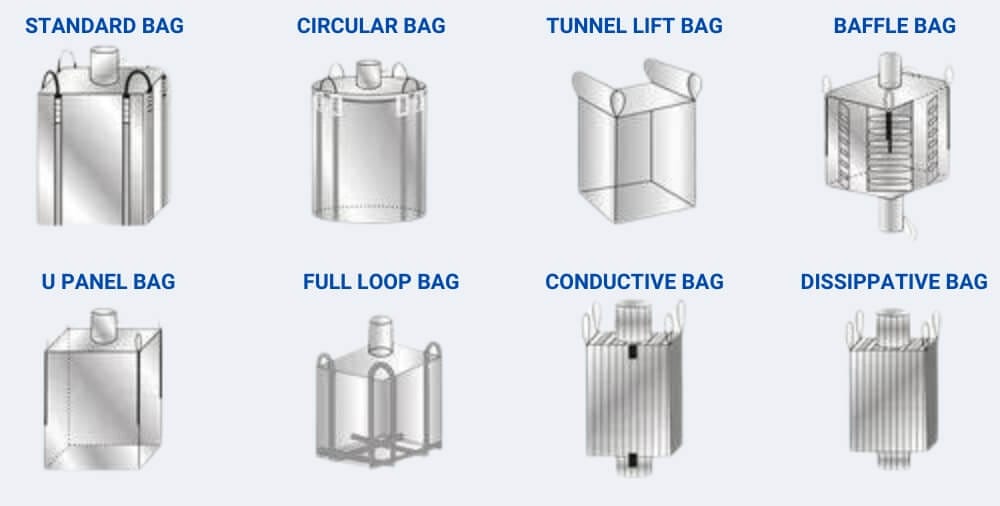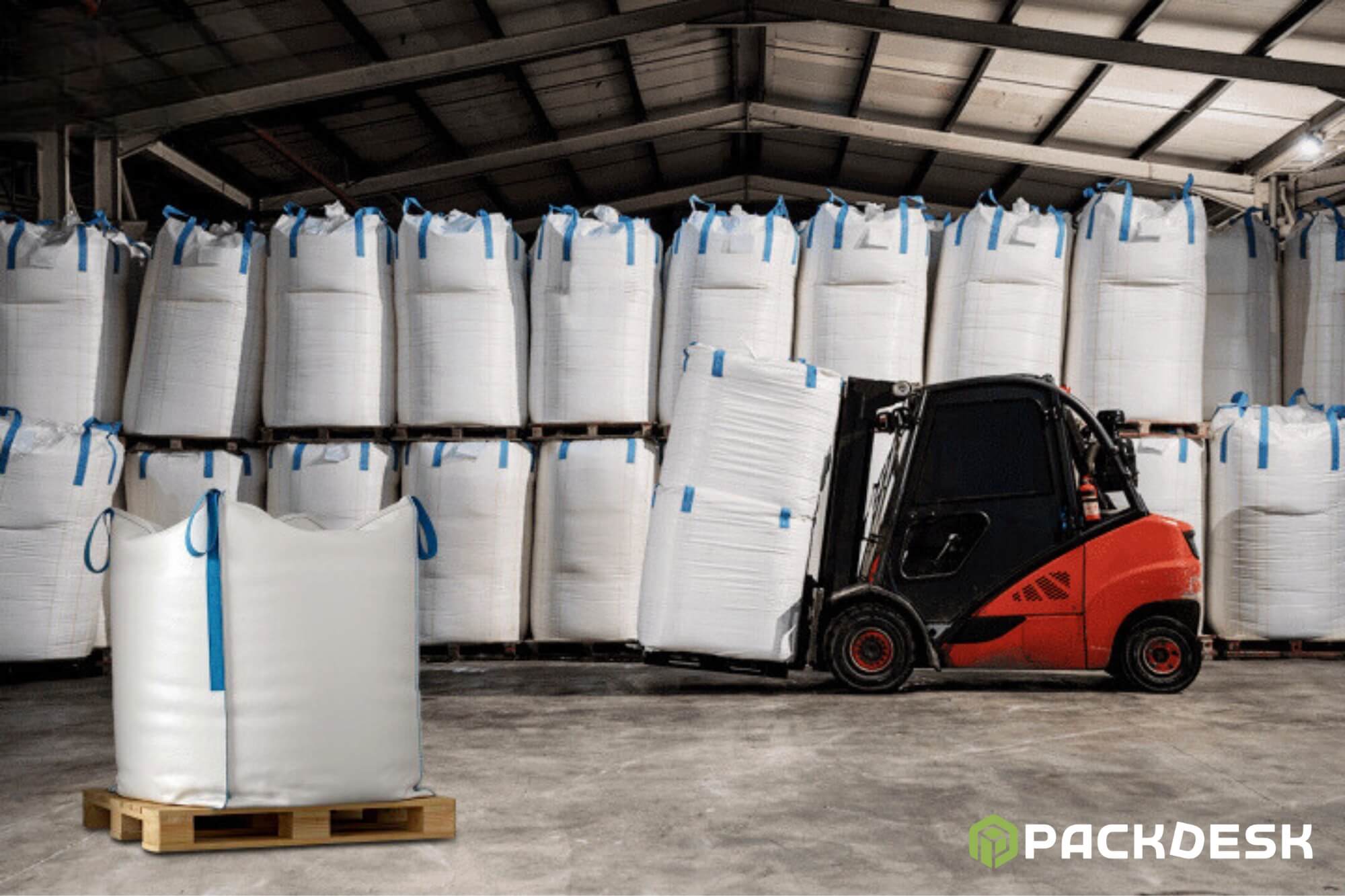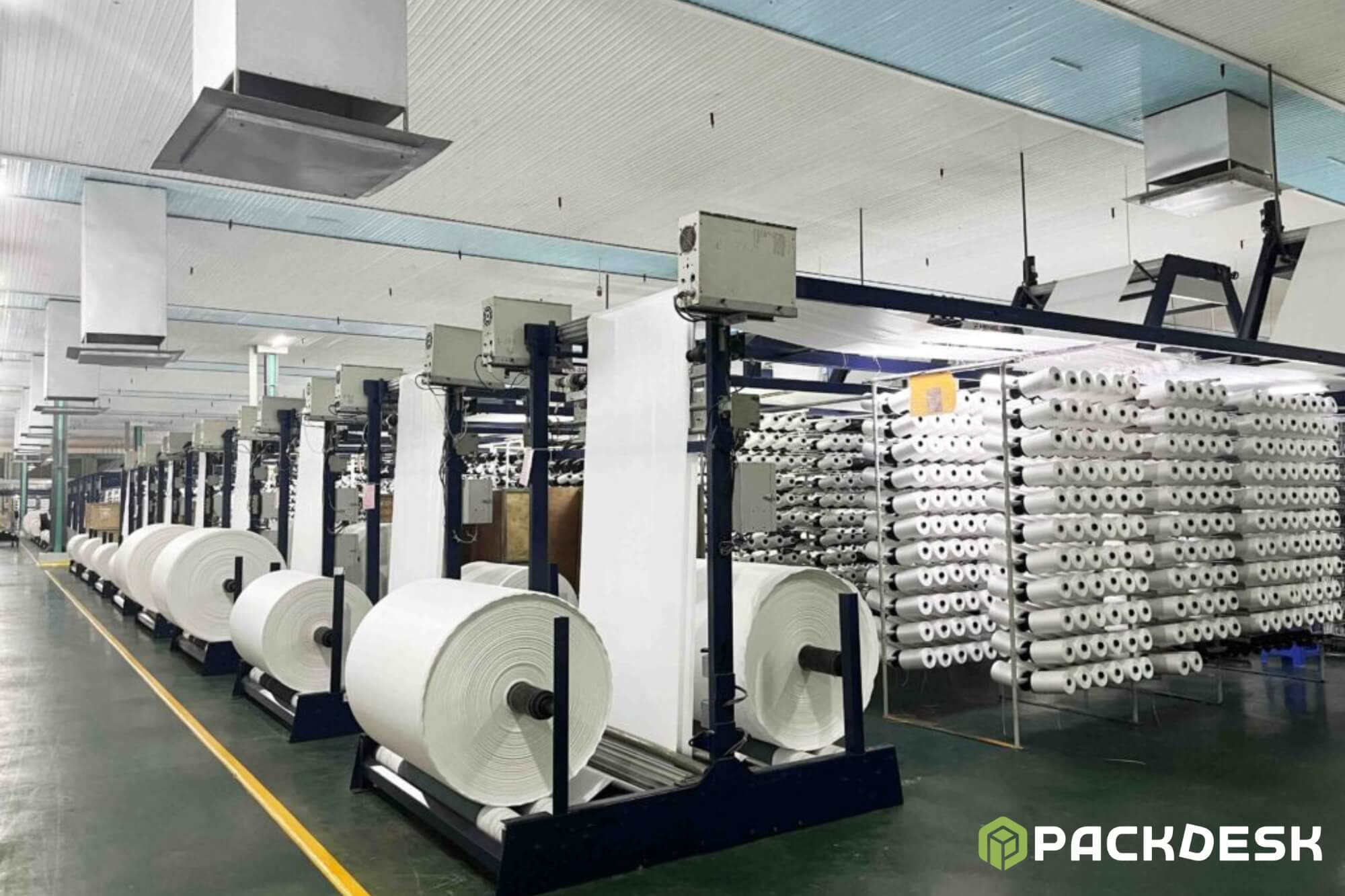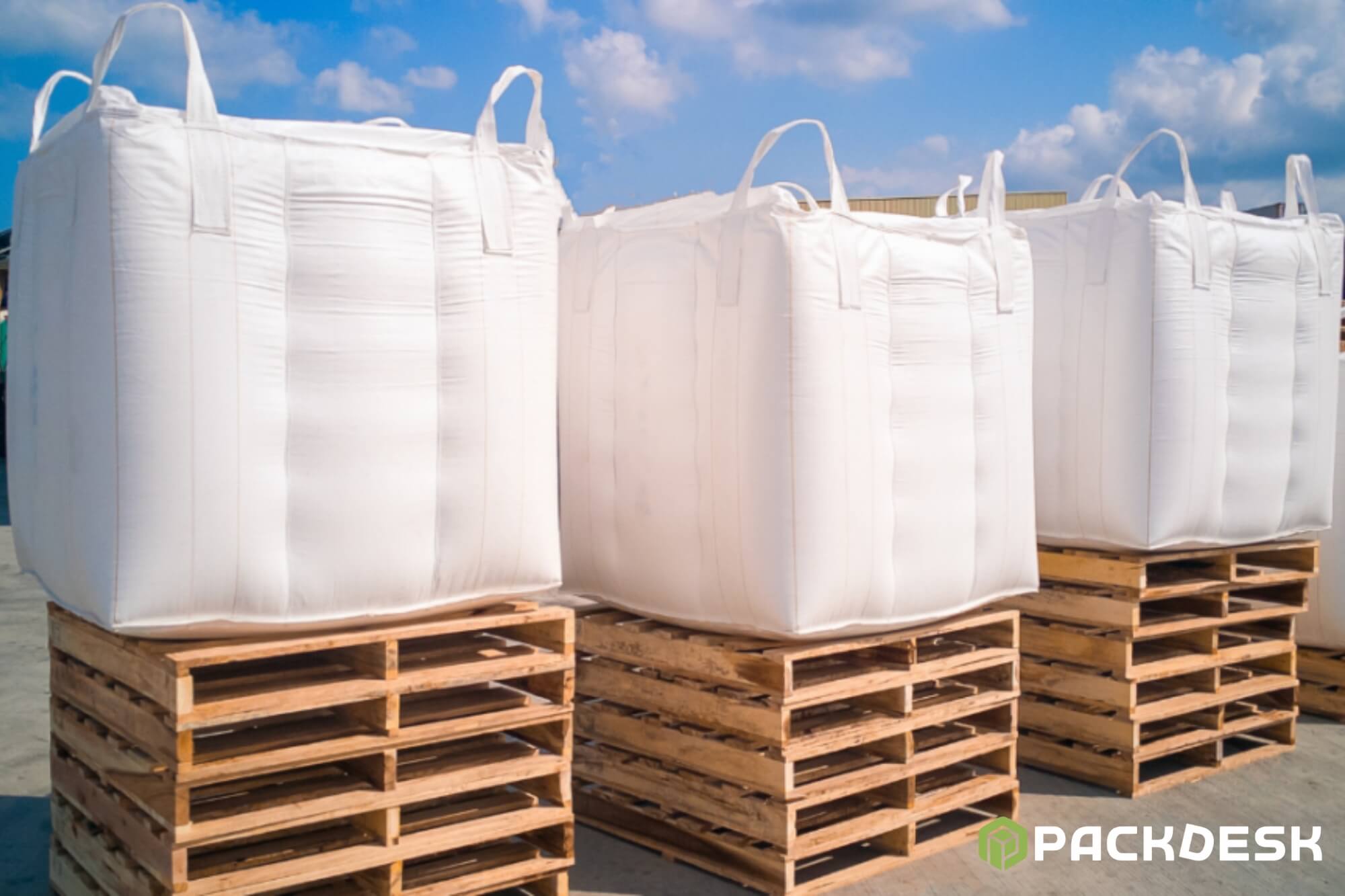A hen's egg is, quite simply, a work of art, a masterpiece of design and construction with, it has to be said, brilliant packaging!
-Steve Jobs (The late CEO of Apple)
Flexible Intermediate Bulk Containers (FIBC), commonly known as bulk bags or big bags, have become indispensable in diverse industries due to their versatility, durability, and cost-effectiveness. These large, flexible woven bags are developed for storing and transporting dry, flowable products, including grains, seeds, powders, and granules. As you read through, we’ll explore the different types of FIBC bags, their applications, benefits, and the considerations for selecting the right FIBC bag for your needs.
Types of FIBC Bags
FIBC bags come in various types, each tailored to specific applications and requirements:
- Type A FIBC Bags: Made of plain-woven polypropylene or other non-conductive material, Type A bags are suitable for transporting non-flammable materials. They are not anti-static and should not be used in environments with traces of volatile gases or dust.
- Type B FIBC Bags: Similar to Type A but with a lesser breakdown voltage, Type B bags can prevent the proliferation of brush discharges. They are also not anti-static but are used for materials with low ignition sensitivity.
- Type C FIBC Bags: Known as conductive or groundable bags, Type C FIBCs are made from non-conductive materials interwoven with conductive threads. These bags must be grounded during filling and emptying to safely dissipate static electricity, making them suitable for transporting flammable powders and materials in explosive environments.
- Type D FIBC Bags: Made from anti-static and static dissipative fabrics, Type D bags do not mandate grounding. They are designed to safely dissipate static charges into the atmosphere, suitable for environments with flammable gases or dust.
- Food-Grade FIBC Bags: Specifically manufactured for the food industry, these bags are made from virgin polypropylene resin, ensuring they meet the stringent safety and hygiene standards required for food storage and transportation.

Applications of FIBC Bags
FIBC bags are widely used across multiple industries due to their flexibility and efficiency:
- Agriculture: FIBC bags are ideal for transporting and storing agricultural products such as grains, seeds, and fertilizers. Their ability to hold large quantities reduces operational time and cost.
- Construction: FIBC bags are often used for carrying sand, gravel, and other construction materials. Their strength and durability make them perfect for heavy-duty applications.
- Chemical Industry: FIBC bags are suitable for transporting chemicals, powders, and minerals. Type C and Type D bags are often used in these industries to control static discharge.
- Food Industry: Food-grade FIBC bags are used for storing and transporting food products like sugar, salt, flour, and other dry goods, ensuring they remain intact & contamination-free.
- Pharmaceuticals: These bags provide a safe and hygienic method for transporting pharmaceutical ingredients and products, adhering to strict industry regulations.
Benefits of using FIBC Bags
The wide-acceptance of FIBC bags can be attributed to several key advantages:
- Cost-Effectiveness: FIBC bags offer a cost-effective solution for bulk transportation and storage. Their reusable nature and the reduction in handling costs contribute to overall savings.
- Versatility: Available in various types and sizes, FIBC bags can be customized to meet specific industry requirements, making them versatile for a wide range of applications.
- Durability: FIBC Bags are made from robust woven polypropylene and are designed to withstand heavy loads and harsh conditions, ensuring the safe transportation of goods.
- Space Efficiency: FIBC bags can be easily folded and stored when not in use, saving valuable storage space compared to rigid containers.
- Safety: With options like Type C and Type D bags, FIBC bags provide solutions for safely transporting flammable and hazardous materials, reducing the risk of accidents.
Choosing the Right FIBC Bag
Selecting the appropriate FIBC bag for your needs involves considering several factors:
- Material Compatibility: Ensure the bag material is compatible with the product you intend to store or transport. For instance, food-grade bags should be used for food products, while conductive bags are necessary for flammable materials.
- Load Capacity: FIBC bags come in various sizes and load capacities. Choose a bag that can handle the weight of your product without compromising safety.
- Handling and Filling Requirements: Consider how the bag will be filled, discharged, and handled. Some bags have specific features like spouts, duffle tops, or liners to facilitate these processes.
- Regulatory Compliance: Ensure the FIBC bags meet industry standards and regulations, especially if used in the food or pharmaceutical industries.
FIBC bags have revolutionized the way bulk materials are stored and transported across various industries. Their versatility, cost-effectiveness, and safety features make them an essential element in modern logistics and supply chains. By understanding the different types of FIBC bags and their specific applications, businesses can make informed decisions to optimize their operations and ensure the safe handling of their products. Whether in agriculture, construction, chemicals, food, or pharmaceuticals, FIBC bags offer a reliable solution for bulk handling needs.




